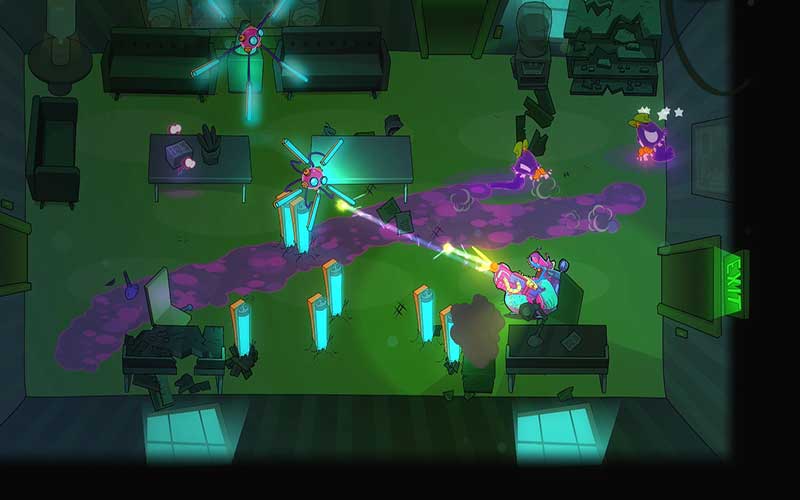
Here are some signs you're working at a job without advancement opportunities and advice for making changes or moving on: 1. Related: Defining Job Satisfaction 15 signs of a dead-end job and what to do about it
#Managing employees in a dead end job professional#
Job satisfaction can also help you balance your professional and personal life, making it easier to develop a career you enjoy. When you feel satisfied at your job and envision a future in your current position, you can find the motivation to try your best at work, be innovative and bring a lasting passion to the workplace. Job satisfaction is important because it allows you to build a sustainable, long-lasting career where you grow your skills and develop professional relationships.

In this article, we share 15 signs of a dead-end job and share what to do about it to improve your experience in the workplace. Understanding the indications that your role doesn't provide you with growth opportunities, you can be proactive about building a career with the opportunities you deserve. Since changing jobs can be a big life decision, it's important to understand when a job isn't right for you and what action you can take. If you still feel like you are continually being told what to do rather than having the capacity to affect your surroundings, think about looking for a more open-minded team.During your career, you may feel like it's time to consider other job options if your role or employer no longer meets your expectations. Set up one-on-one meetings with your supervisor, suggest events and promotions, ask to join in team meetings, and try to be active in all aspects of your profession. Even though entry-level roles frequently have minimal impact, it's important to have a say in how you carry out your work or how the team functions as you gain experience and time at a company. It might be a dead-end profession if your opinions don't influence how things go at work. Limited influence on workplace decisions: You may also consider what other companies pay workers in equivalent jobs with equivalent experience.ģ. To increase your chances of getting a reasonable pay raise, present evidence of your value, such as increased sales figures, modifications you made to the company's processes or the amount of time you spent working there. It may be challenging to grow your career in a company where pay increases are nonexistent or are only granted to keep up with the cost of living. If you see that people at your company frequently leave, take the initiative to improve working conditions by asking for more favorable hours or pay, reorganizing your duties, or talking to your coworkers.

Numerous factors, including the workplace culture and taxing job duties, might contribute to high turnover. If other people rapidly realize they can't stay at a company or in a role for a long time, you might as well. Here are some red flags that point to work without the potential for advancement and suggestive of quitting or changing careers:Ī position or firm with a high turnover rate could indicate that the position is simply a momentary stop on your professional path. What are the signs of being in a dead-end job? Although an employee's sense of importance to society is intrinsically linked to their work happiness, they may experience high levels of job satisfaction in a position with no prospects for advancement. It should be noted that the phrase "dead-end job" has nothing to do with the potential level of job satisfaction associated with certain employment.

Until the management changes jobs, the individual in question will never advance in the role.

Jobs that aren't often thought of as dead-end jobs might transform into them for reasons unrelated to work, such as an authoritarian employer who doesn't appear to like the employee and won't give them a raise. When describing dead-end jobs, it's common to say that they have a low ratio of service to pay, such as long hours and few holidays mixed with minimum wage income. Dead-end jobs offer little to no potential for future reward or promotion.


 0 kommentar(er)
0 kommentar(er)
